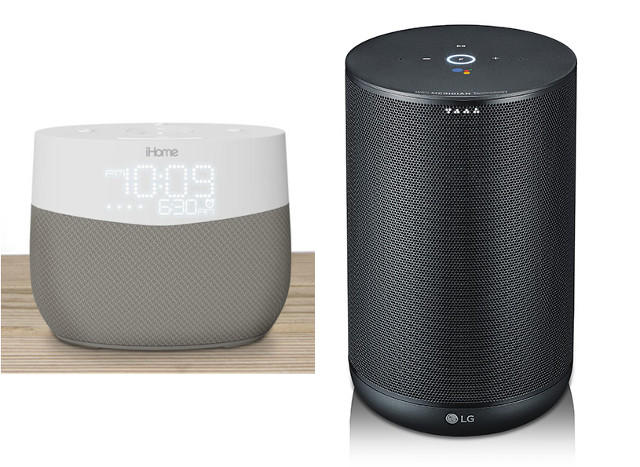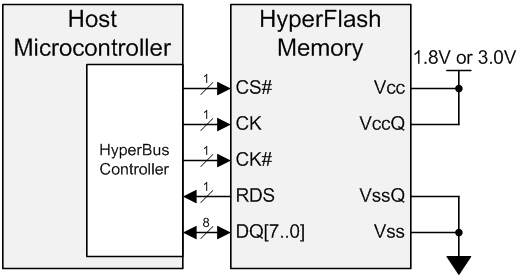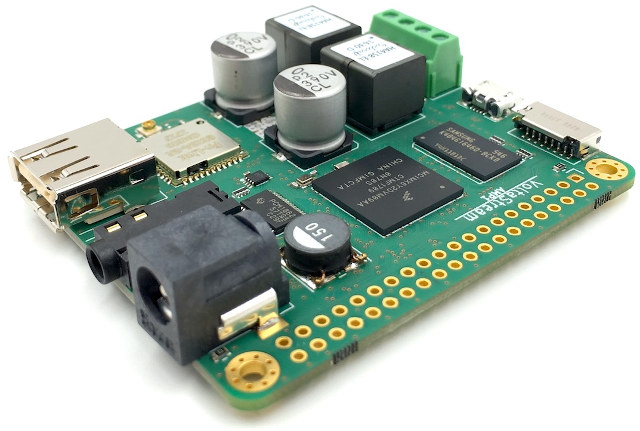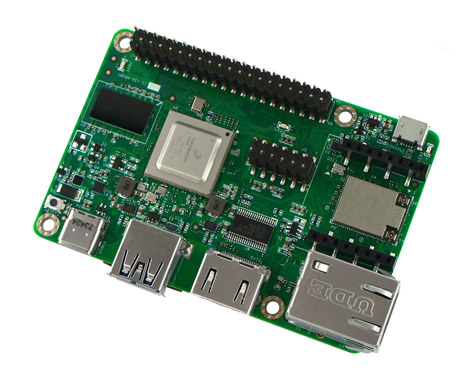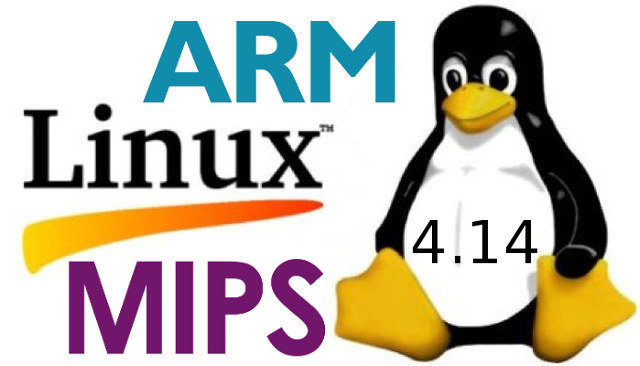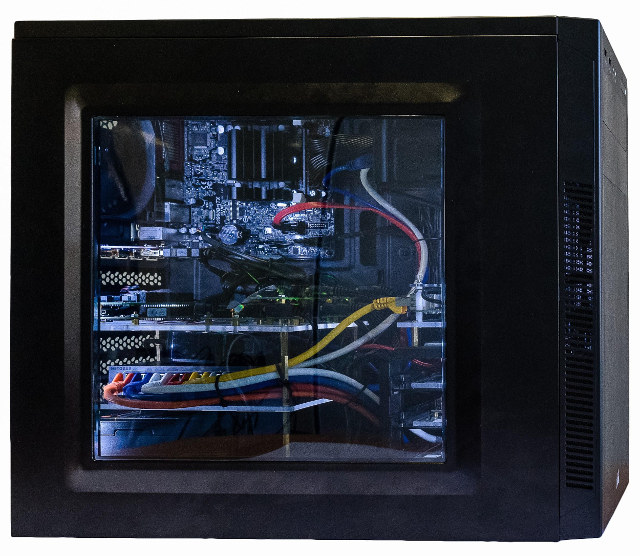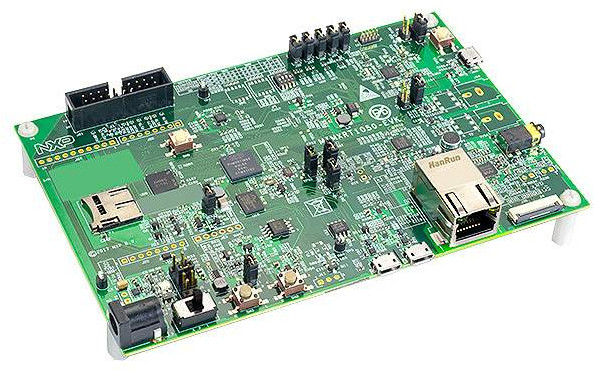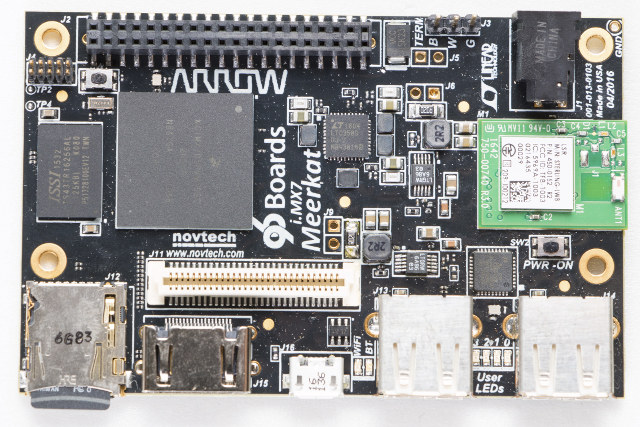Android Things was first introduced as Brillo in October 2015, before being renamed to Android Things the following year when a developer preview was released with support for Raspberry Pi 3, as well as Intel and NXP development boards. But if you can’t remember the last time you’ve purchased a device running Android Things that’s normal, because so far, there was none. Google announced this is going to change as the first set of Android Things products have been announced at CES 2018. The first category of devices to run Android Things will be Google Assistant enabled smart speakers with the launch of products such as iHome iGV1 and LG ThinQ WK7. ODM partners have also created full speaker reference designs based on certified Android Things and Cast System-on-Modules (SoMs) powered by Rockchip RK3229, Mediatek MT8516, or based on Qualcomm SD212 Home Hub Platform. NXP i.MX 8M solutions are also […]
Octo SPI / HyperBus Interface is Designed for High Speed Serial Flash, RAM, and MCP
So far, if you needed high speed storage with low pin count in your MCU based board, you could use QSPI (Quad SPI) NOR flash, but earlier this month I wrote about STM32L4+ MCU family, which added two Octo SPI interfaces. I had never heard about Octo SPI previously. Those two interfaces can be used with single, dual, quad, or octal SPI compatible serial flash or RAM, and support a frequency of up to 86 MHz for Octal SPI memories in STM32L4+ MCU. STMicro OctoSPI interface also supports Cypress/Spansion Hyperbus mode to connect to HyperFlash or HyperRAM chip, or even HyperFlash + HyperRAM Multi-Chip packages (MCP), and variable or fixed external memory latency as defined by the Hyperbus protocol specification. The latter reveals Hyperbus supports performance up to 400 MB/s (provided the controller support 200 MHz), and relies on either 11 bus signals using 3.0V I/O (Single-ended clock CK), or […]
VoltaStream AMP1 Linux Audio Board Includes a Stereo Audio Amplifier, Adds WiFi and Bluetooth
Last summer I wrote about VoltaStream ZERO an audio board powered by NXP i.MX6ULL processor, with up to 1GB RAM, a Texas Instruments DAC, and leveraging Raspberry Pi Zero form factor. The board runs a custom Linux distribution called PolyOS built with the Yocto Project, and including shairport-sync, librespot, SqueezeLite, a DLNA renderer, and more. Polyvection, the company behind the project is now back with VoltaStream AMP1 audio development board, with half the board very similar to VoltStream ZERO, and the other half featuring an audio amplifier, and a wireless module for WiFi and Bluetooth. VoltaStream AMP1 board specifications: SoC – NXP i.MX6ULL ARM Cortex-A7 processor @ 996 MHz System Memory – 512 MB DDR3 Storage – micro SD card slot Audio 1x I2S for integrated DAC and AMP, 1x I2S for GPIO access, 1x TOSLINK-IN jack Analog DAC – Texas Instruments PCM1862 (SNR 103 dB) Amplifier – ISSI IS31AP2121 […]
WandPi 8M Development Board Coming Soon with NXP i.MX8M SoC for $89 and Up
Wandboard launched in 2012 using Freescale i.MX6 Solo/Dual processor, following soon after by Wandbord Quad. We are not hearing much about those boards today, but since the processor comes with 10 to 15-year long term support, they are still being sold, and software keeps getting updated. For example, the board first shipped with Android 4.1 (Jelly Bean), and the company recently provided Android 7.1 (Nougat) images, and Android 8.x Oreo is likely coming next year. The company has now unveiled the next generation of Wandboard boards with WandPi 8M powered by NXP i.MX 8M Cortex A53/M4 processors, with up to 2GB DDR4, 16GB eMMC flash, and various network connectivity options and ports. Three versions of the board (Lite, Pro, Deluxe) will be available with the following specifications: SoC – NXP i.MX8M Quad with four ARM Cortex A53 cores, a Cortex M4F real-time core, and Vivante GC7000Lite GPU with support for […]
Linux 4.14 Release – Main Changes, ARM & MIPS Architecture
Linus Torvalds has announced the release of Linux 4.14: No surprises this week, although it is probably worth pointing out how the 0day robot has been getting even better (it was very useful before, but Fengguang has been working on making it even better, and reporting the problems it has found). Sure, some of the new reports turned out to be just 0day doing things that just don’t work (ie KASAN with old gcc versions, but also doing things like loading old ISA drivers in situations that just don’t make sense – remember when you couldn’t even ask if the hardware existed or not, and just had to know), but even then it’s been all good. The appended shortlog is obviously only for the (small) haul since rc8, and it really is tiny. Not very many commits, and they are small. The biggest thing that stands out in the diffstat […]
Lab in a Box Concept Embeds x86 Server and 6 ARM Boards into a PC Case for Automated Software Testing
The Linux kernel now has about 20 millions line of code, Arm has hundreds of licensees making thousands of processors and micro-controllers, which end up in maybe hundreds of thousands of different designs, many of which are not using Linux, but for those that do, Linux must be tested to make sure it works. The same stands true for any large software used on multiple hardware platforms. Manual testing is one way to do it, but it’s time consuming and expensive, so there are software and hardware continuous integration solutions to automate testing such as Linaro LAVA (Linaro Automated Validation Architecture), KernelCI automated Linux kernel testing, and Automotive Grade Linux CIAT that automatically test incoming patch series. Both CIAT and KernelCI focus on Linux, and rely on LAVA, with KernelCI leveraging hardware contributed by the community, and proven to be effective as since it’s been implemented, failed build configs dropped […]
Emcraft Releases Linux BSP for NXP i.MX RT1050 Cortex M7 Evaluation Board
NXP iMX RT series is a family of ARM Cortex M7 processors clocked at 600 MHz, making the solution a “crossover embedded processor” bridging the gap between real-time capabilities of micro-controllers and the performance of application processors. This week, NXP provided some benchmark numbers for i.MX RT1050 processor, which delivers a CoreMark score of 3020, DMIPS of 1284, and 20ns interrupt latency at 600 MHz, which means it could be a good candidate for embedded Linux, and Emcraft Systems has just released a uCLinux BSP for the NXP i.MX RT1050 EVK board. The BSP features U-Boot v2017.09-rc1, Linux Kernel 4.5 with relevant device drivers such as key I/O interfaces, Wi-Fi, SD card, LCD, etc…, and GNU development tools such as a GCC 4.7 toolchain, GDB, and so on. The company has made a demo with a GUI application designed with Crank Software’s Storyboard Suite, and running in Linux on the […]
iMX7-96 “Meerkat” ARM Cortex A7/M4 Development Board Launched for $109
If you have really good memory, you may remember that Freescale was working on a 96Boards compliant i.MX 7 development board in 2015 that was supposed to be released in Q4 of that year. Yesterday the board was finally launched and demonstrated on 96Boards OpenHours. i.MX7-96 board (aka Meerkat) is powered by an NXP i.MX 7 dual core ARM Cortex-A7 + 1x Cortex M4 processor, coupled with 512MB RAM, and complies with the Consumer Edition (CE) of 96Boards specifications. iMX7 96 board specifications: SoC – NXP i.MX 7Dual dual ARM Cortex-A7 processor at 1.2 GHz, with Cortex-M4 @ 200 MHz and 2D accelerator System Memory – 512 MB DRAM Storage – micro SD slot Video Output – HDMI Connectivity – 802.11 b/g/n WiFi + Bluetooth 4.1 LE (LSR Sterling-LWB module) USB – 2x USB 2.0 hosts, 1x micro USB 2.0 OTG Camera – 1x MIPI-CSI Expansion Interfaces 40-pin low speed […]


